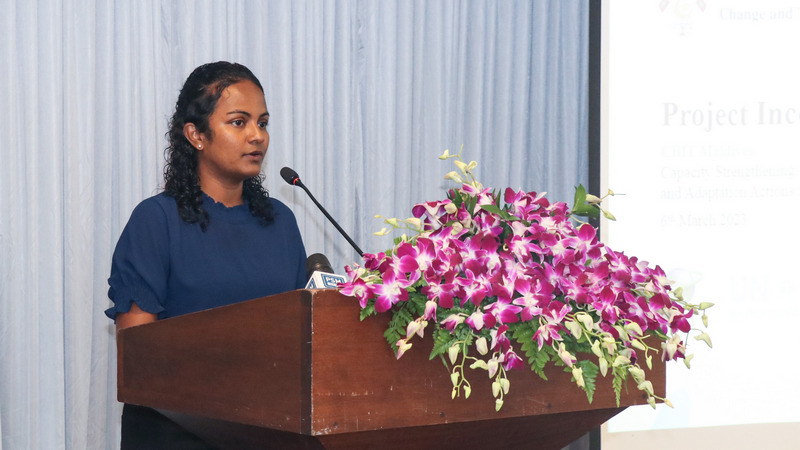Maldives has initiated the “Capacity Building for Improved Transparency of Climate Change Mitigation and Adaptation Actions in the Maldives” (CBIT Maldives) project with its Inception Workshop. The workshop was held on 6th March 2023 and attended by stakeholders from various public and private organizations.
The CBIT Maldives project aims to strengthen institutional capacity for compiling the GHG inventory, tracking mitigation and adaptation actions and establish a climate finance tracking system in the Maldives. The project is funded by the Global Environment Facility (GEF) and executed by the Ministry with implementation support from United Nations Environment Program (UN Environment).

At the opening ceremony of the inception workshop, the Minister of Environment, Climate Change and Technology, Ms. Aminath Shauna, emphasized the importance of the project in building national institutional and human resource capacity to handle data and information related to climate change adaptation, mitigation and support while also enhancing the ability to report transparently to the United Nations Framework Convention on Climate Change (UNFCCC). She also highlighted the Maldives’ vulnerability to the adverse impacts of climate change and the need for urgent action to address the issue.

During the workshop UN Environment and CBIT Maldives project management unit briefed about the project and planned undertakings to achieve the objectives of the project. This was followed by detail group discussions on the project deliverables. The participants also had the opportunity to provide feedback and suggestions to ensure the successful implementation of the project.

The CBIT Maldives project is aimed to enhance the Maldives’ transparency system, in line with Enhanced Transparency Framework (ETF) of the Paris Agreement (PA). To achieve this objective, efforts are needed to strengthen and formalize long term institutional arrangements, systemize data collection and processing, and to develop indicators and advancing methodologies, as well as improve the overall data quality and management procedures for preparing GHG inventories, tracking mitigation and adaptation actions and climate finance in an integrated manner. The goal is to inform the national decision-making process as well as regularly and transparently report to the UNFCCC process.


